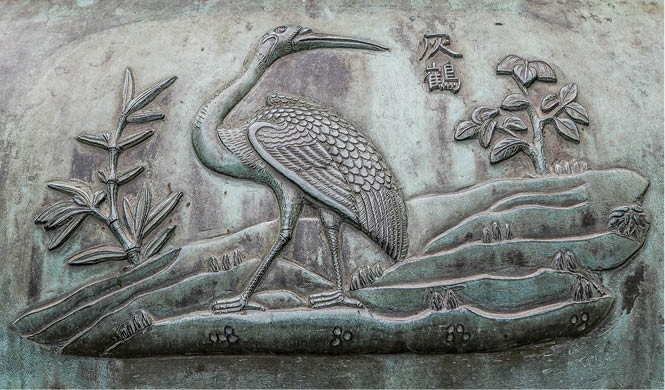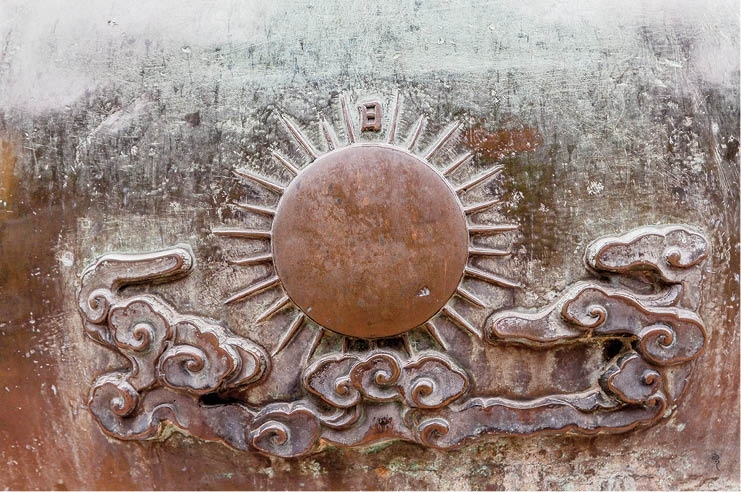The Nine Dynastic Urns were recognized as a National Treasure in 2012. On May 8, in the capital city of Mongolia, the “Bronze castings on the Nine Dynastic Urns at the Imperial Citadel of Hue” officially became a documentary heritage of UNESCO's Memory of the World Programme for the Asia - Pacific Region.
The Nine Dynastic Urns were ordered to be cast by Emperor Minh Mang in the winter of 1835 and completed in 1837. Each urn has its own name corresponding to the posthumous title of each emperor in the Nguyen Dynasty, except for the Du Urn and the Huyen Urn. With 162 independent and complete carvings, and the skillful combination of the art of bronze casting and embossing of Vietnam, the Nine Dynastic Urns are an encyclopedia of nature, life, and people of Vietnam in the first half of the 19th century. The castings on the Nine Dynastic Urns are a rare cultural heritage because of their content value regarding history, culture - education, geography, feng shui, medicine, and calligraphy. After 200 years, the Nine Dynastic Urns are still intact, which are original and unique.
Through the photo angles of Bao Minh, the photographer, Thua Thien Hue Weekly invites readers to revisit the Nine Dynastic Urns, and “listen” to stories told by ancient people about Vietnam's geography and history… through these embossed castings, which are hand-crafted but extremely sophisticated. Each image being captured there represents the unique characteristics of different regions, stretching from the North to the South. Every Vietnamese citizen is sure to find a reflection of their beloved homeland.
 |
| The Nine Dynastic Urns in front of Hien Lam Cac |
 |
| The Cao Dinh (Central Urn) in front of The Mieu Temple |
 |
| Admiring the engravings on the Nine Dynastic Urns |
 |
| Mount Thien Ton, also known as Mount Trieu Tuong, Mount Am in Thanh Hoa |
 |
| The Cannon |
 |
| Crane bird |
 |
| The sun |
By Thua Thien Hue Weekly







